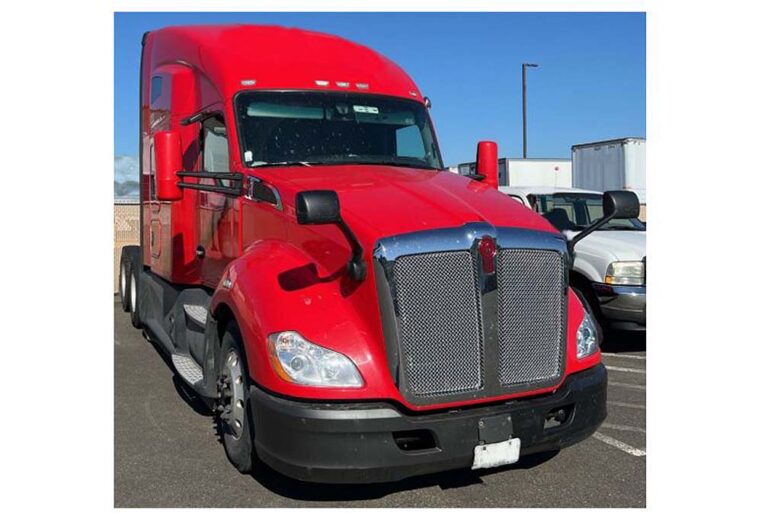OLYMPIA, Wash. — Washington state officials have released a report detailing how a truck driver died from carbon monoxide (CO) poisoning in 2023.
According to the Washington state Fatality Assessment and and Control Evaluation’s (FACE) June 1 report, the 61-year-old driver, who wasn’t named, breathed in a lethal amount of CO after a long rest break in the cab of his truck.
The driver had parked his rig at his employer’s terminal yard for about 24 hours and slept overnight in the sleeper berth awaiting his next dispatch, the report states.
Around 9:30 a.m., he began walking from his truck to the main terminal building when another driver saw him struggling to open a door to the employee restroom and shower area.
The driver helped him with the door but saw he was disoriented and having difficulty breathing, walking and standing, according to the report. The driver asked if the man needed medical help, to which he nodded in the affirmative.
The driver who came to assist then went to tell management about the emergency.
After calling 911, a manager and the driver returned to the restroom, but the ill driver had locked himself inside and refused to leave. After a few minutes, the driver agreed to open the door and go with them to the employee lounge. He complained of a headache and back pain, had very pale skin with flushed cheeks and was sweating and struggling to breathe.
First responders arrived and took him to the hospital, but he died shortly after. A toxicology report concluded the driver died from CO poisoning.
Following the incident, investigators found:
- The driver was most likely poisoned by CO from a single-burner butane cooking stove found in the truck.
- The sleeper had a bunk heater with a small diesel-powered blower motor. Air monitoring in the sleeper and near the heater’s exhaust while it was running did not show any significant amount of CO.
- No exhaust leaks were detected in the truck’s engine or undercarriage area.
As part of the report, FACE officials outlined CO safety practices that the trucking industry should follow.
According to the report, employers should make sure a commercial motor vehicle is not used when an occupant has been affected by CO; where CO has been detected inside the vehicle; or when a mechanical condition is discovered which would be likely to produce CO hazard exposure to vehicle occupants.
FACE investigators concluded that, to help prevent similar occurrences, employers should:
- Install battery-powered CO detector alarms in truck cabs and sleeper berths.
- Use only detectors made for vehicles.
- Always follow the detector manufacturer’s installation, maintenance and safety instructions.
- Develop and enforce clearly written accident prevention program policies for CO poisoning prevention.
Policies should prohibit use of butane, propane and other fuel-burning cooking stoves and space heaters inside cabs, sleepers and trailers, according to FACE.
Fuel canisters can produce CO, a colorless, odorless and tasteless toxic gas that can quickly, and without warning, cause brain and heart damage, unconsciousness and suffocation.
Companies should also require drivers whose CO alarm has activated to park and exit their truck immediately, get into fresh air and have a repair shop tow and check their truck for CO leaks. Call 911 if the driver feels poisoned. Instruct drivers to avoid idling or parking near other trucks that are idling or using auxiliary power units producing exhaust fumes. Such fumes can enter a truck even if windows and vents are closed.
Drivers should be trained and their knowledge about CO hazards evaluated, according to FACE. Periodic refresher courses should be held as well.
Regularly scheduled preventive maintenance checks and services on engine and bunk heater exhaust systems should be done to ensure CO leaks are detected and repaired before the truck is returned to service.
Born in Pine Bluff, Arkansas, and raised in East Texas, John Worthen returned to his home state to attend college in 1998 and decided to make his life in The Natural State. Worthen is a 20-year veteran of the journalism industry and has covered just about every topic there is. He has a passion for writing and telling stories. He has worked as a beat reporter and bureau chief for a statewide newspaper and as managing editor of a regional newspaper in Arkansas. Additionally, Worthen has been a prolific freelance journalist for two decades, and has been published in several travel magazines and on travel websites.















